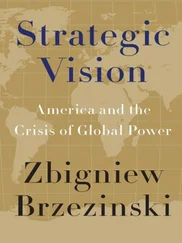1 ...7 8 9 11 12 13 ...16 Why and how did people live in “a twilight between knowing and not knowing” ? 19For starters, the threat Hitler posed to all of civilization helped overshadow his specific targeting of the Jews. Widespread anti-Semitism also contributed. It was not that readers’ prejudice against Jews necessarily made them happy to hear reports of Hitler’s monstrosity. Rather, their indifference to the fate of Jews likely caused them to skim the stories and to focus on other aspects of the war. Others did not take the time to process the reports because they believed the Allies were doing all they could; there was no point in getting depressed about something they could not control. Such knowledge was inconvenient. Karski later recalled that Allied leaders “discarded their conscience” with the rationale that “the Jews were totally helpless. The war strategy was the military defeat of Germany.” 20Winning the war was the most efficient way to stop Hitler’s murder of civilians. The Allied governments worked indirectly to help Jewish victims by attempting to defeat him, but they rejected the Jewish leaders’ request to declare as a war aim the rescue of Europe’s Jews.
The vast majority of people simply did not believe what they read; the notion of getting attacked for being (rather than for doing) was too discomfiting and too foreign to process readily. A plot for outright annihilation had never been seen and therefore could not be imagined. The tales of German cremation factories and gas chambers sounded far-fetched. The deportations could be explained: Hitler needed Jewish slave labor for the war effort. During the Turkish campaign against the Armenians, this same propensity for incredulity was evident, but it was even more pronounced in the 1940s because of a backlash against the hyped-up “Belgian atrocities” of World War I. 21During that war, journalists had faithfully relayed tales of bloodthirsty “Huns” mutilating and raping nuns and dismembering Belgian babies. Indeed, they reported claims that the Germans had erected a “corpse-conversion factory” where they boiled human fat and bones into lubricants and glycerine. 22In the 1920s and 1930s, the press had debunked many of the Allies’ wartime reports of German savagery, yielding a “hangover of skepticism.” Although many of these stories were confirmed years later, they were still being discredited at the outbreak of World War II. 23When tales of Nazi gas vans and extermination plots emerged, many people believed that such stories were being manufactured or embellished as part of an Allied propaganda effort. Just as military strategists are apt to “fight the last war”—to employ tactics tailored for prior battlefield foes—political leaders and ordinary citizens tend to overapply the “lessons of history” to new and distinct challenges.
In his campaign to convey the horror of Nazi atrocities, Zygielbojm tried to overcome people’s instinctive mistrust of accounts of gratuitous violence. But he began to despair of doing so. In 1943 he learned that his wife and child had died in the Warsaw ghetto. In April 1943, at the Bermuda conference, after twelve days of secretive and ineffectual meetings, the Allies rejected most of the modest proposals to expand refugee admissions, continuing to severely limit the number of Jews who would be granted temporary refuge in the United States and unoccupied Europe. 24On May 10, over dinner in London, Arthur Goldberg of the OSS informed Zygielbojm that the United States had rejected his requests to bomb Auschwitz and the Warsaw ghetto. “With understandable pain and anguish,” Goldberg remembered later, “I told him that our government was not prepared to do what he requested because in the view of our high command, aircraft were not available for this purpose.” 25
Zygielbojm could take it no more. He typed up a letter, addressed it to the president and prime minister of the Polish government-in-exile, and explained his imminent act:
The responsibility for this crime of murdering the entire Jewish population of Poland falls in the first instance on the perpetrators, but indirectly also it weighs on the whole of humanity, the peoples and governments of the Allied States, which so far have made no effort toward a concrete action for the purpose of curtailing this crime.
By passive observation of this murder of defenseless millions and of the maltreatment of children, women, and old men, these countries have become the criminals’ accomplices…
I can not be silent and I can not live while the remnants of the Jewish people of Poland, of whom I am a representative, are perishing…
By my death I wish to express my strongest protest against the inactivity with which the world is looking on and permitting the extermination of Jewish people. I know how little human life is worth, especially today. But as I was unable to do anything during my life, perhaps by my death I shall contribute to destroying the indifference of those who are able and should act. 26
Szmul Zygielbojm took an overdose of sleeping pills in his Paddington flat on May 12, 1943. News that the Nazis had crushed the Warsaw ghetto uprising and liquidated its inhabitants reached London and Washington the day of his memorial service. 27
The New York Times published Zygielbojm’s suicide letter on June 4, 1943, under the headline “Pole’s Suicide Note Pleads for Jews” with the further headline “He Denounced Apathy.” The last line of the Times piece suggested that Zygielbojm “may have achieved more in his death than in his life.” In fact, he failed to alter Allied policy in either state. 28
In Their Own Words
Back in Washington, Raphael Lemkin, too, thought of taking his own life but concluded he was too “peculiarly placed” to bow out. After all, while others were mulling atrocity prevention for the first time, he had been thinking about it for more than a decade. He identified himself with the cause and quickly began to personify it. When he read the chilling reports from his homeland, he did what Zyegielbojm had done initially—he placed faith in information. Lemkin also played to his strengths: law and language.
In November 1944 the Carnegie Endowment for International Peace published Lemkin’s Axis Rule in Occupied Europe, by then a 712-page book of the rules and decrees imposed by the Axis powers and their client states in nineteen Nazioccupied countries and territories in Europe. Having begun gathering these laws while in Sweden, Lemkin had continued the compilation as part of his service to the U.S. government. Whatever Lemkin’s stated aspirations to appeal to a popular audience, Axis Rule was a dry and staunchly legalistic reference book. 29It included proposals for postwar restitution of property to the dispossessed and for the reimbursement of millions to foreign workers who had been forced into labor in Germany. It also restated his 1933 Madrid proposal to outlaw the targeted destruction of groups and urged the creation of an international treaty that could be used as a basis for trying and punishing perpetrators.
However useful the book’s recommendations, Lemkin believed his real contribution lay in reproducing the stark collection of decrees (which accounted for some 360 of the book’s pages). These, he was certain, would do wonders to combat widespread disbelief and despondency, especially in the Anglo-American reader, who, he wrote, “with his innate respect for human rights and human personality may be inclined to believe that the Axis regime could not possibly have been as cruel and ruthless as it has been hitherto described.” By presenting documents authored by Hitler and his advisers, he was ensuring that nobody in the United States could say he was exaggerating or propagandizing.
A few scholars still rejected atrocity reports and tried to relativize German responsibility. The harshest review of Axis Rule appeared in the American Journal of Sociology in 1946. The reviewer, Melchior Palyi, blamed Lemkin for his failure to explore the “extenuating circumstances” for Nazi behavior. According to Palyi, Lemkin had written a “prosecutor’s brief” rather than an “impartial” inquiry. The reviewer claimed that almost every one of the nine charges Lemkin made against the Nazis could be made against the Allies. “Of course,” the reviewer wrote, “there is this substantial difference: that the Nazis shamelessly displayed their intentionally planned misdeeds, while the western Allies stumble into illegal practices and cover them with humanitarian or other formulas.” 30
Читать дальше












